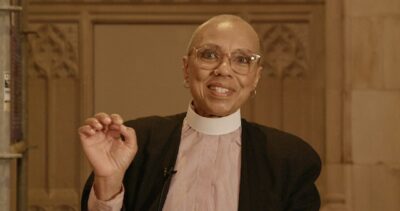 Triennial Chaplain The Rev. Dr. Gayle Fisher-Stewart
Triennial Chaplain The Rev. Dr. Gayle Fisher-Stewart
Rev. Gayle’s spirit and determination are in constant motion. Her career in law enforcement and as a priest are entwined by the belief that God’s work is the direction for us all to follow. Her time on the police department showed her how fragile life is and how short it can be. Every day police officers leave home and don’t know if they will return. We need to learn how to value each and every day and to make each day count.
She truly believes we are all called to make this world a better place, especially if we follow Jesus. Because for me, He said, “you don’t have to live this way if you follow me,” and so she has spent her life trying to figure out what she and others can do to have victory for humankind. If she can be a help to humankind, particularly through the church, then she has a purpose. She has adopted a quote by the astrophysicist, Neil deGrasse Tyson, “It is the knowledge that I’m going to die that creates the focus that I bring to being alive; the urgency of accomplishment; the need to express love now. I don’t fear death. I fear living a life where I could have accomplished something and didn’t. There is a quote from Horace Mann, ‘Be ashamed to die until you have scored some victory for humanity.’” That is on her mind every single day.
The question she asks, “How can you be a change agent to change the world?” In response, her friends always say, “You always want to change the world.” It is empowering and yet humbling when those you love and cherish make such powerful affirmations about your life. Maybe she can’t change the whole world, but she can make a difference, somewhere. How can we all create change, make this place a better place? And for the longest time she has and people will say, she continues to have arguments with the church. Arguments bring light to the dusty corners, the spaces we take for granted.
She has two books, Preaching Black Lives (Matter) and the second one, Black and Episcopalian: the Struggle for Inclusion. In Black and Episcopalian, it says that the Episcopal Church needs to take action on what it preaches. Change is happening, slow changes, but the question is, “If we follow Jesus – Jesus gave up everything, risked everything for us – is the Episcopal Church willing to risk the church to be like Jesus?”
Are you willing to risk the very life of the Church to be like Jesus? And if you’re not willing to risk the very church to be like Jesus, then all of this is words and slogans. As the Episcopal Church deals with reparations for white supremacy and anti-black racism, she is working on another book, Church Hurt: Reparations for My Soul – Healing Race-based Trauma. While focusing on the African American experience in the Episcopal Church, people bring racialized trauma in many forms to the church and then experience racialized trauma by the church. We are not really engaged in healing because if the church focused on healing racialized trauma, it would become trauma-informed and look at every practice, policy, process, sacrament, and liturgy to ensure they don’t inflict trauma, that they lift up the various cultures people bring to the church.
If we believe as we say we believe that all of this is God’s, and God created everything, and God created plenty, Gayle says, “we have to ask why don’t God’s children all have what they need to thrive? So, they can in turn serve God.” Because as Martin Luther King said, “it’s hard to think about serving the Lord when your stomach is growling.” If we believe in Jesus as we say we do, why won’t we follow him to where the hurting people are, to the margins, because that is where we will find Jesus. Not in the buildings we love, but in the difficult and hideous places we shun. “Follow me,” Jesus said. He didn’t say to worship him. In fact, in Revelation, when John bent down to worship Jesus, Jesus told him to get up and worship God, not him. But to follow Jesus requires a risk, a risk Jesus took on the cross.
He risked his very life, everything for us, so we might have life and have it more abundantly. And how do we return this grace, this favor? By hoarding what is God’s. By living with poverty, homelessness, hatred, evil, war. We choose to live with them all. Human beings created all the ills of the world and God is waiting on us to fix what we have messed up.
In the end, Gayle hums the words of a favorite hymn, “if I can help somebody, then my living will not be in vain.”
